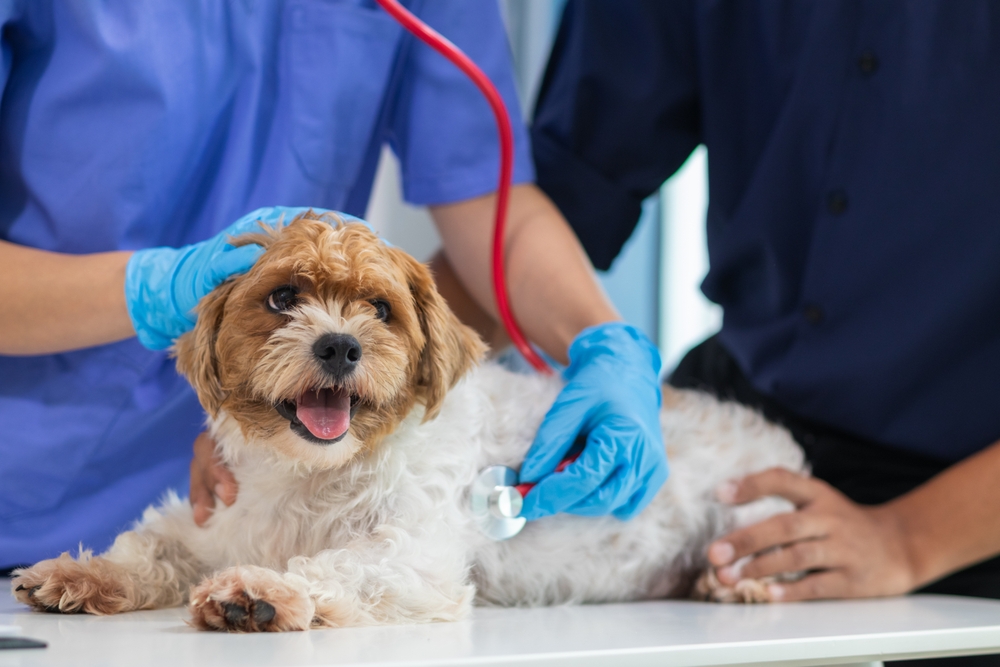As a dedicated pet owner, staying alert to your pet’s health is one of the most critical responsibilities you have. While some changes in behavior or habits may seem insignificant, certain signs should never be ignored. Acting quickly can make a significant difference in diagnosing and treating illnesses early. At Memorial Villages Animal Hospital in Houston, Texas, we’re here to help you recognize these key health signs.
1. Changes in Appetite or Thirst
Changes in your pet’s eating or drinking habits are often the first signs that something might be wrong. A sudden increase or decrease in appetite or thirst can be indicative of various underlying health issues. For example, excessive thirst and urination could be early indicators of diabetes, kidney disease, or hyperadrenocorticism (Cushing’s disease). On the other hand, a significant decrease in appetite might signal conditions such as gastrointestinal disorders, dental problems, or even cancer.
It’s important to note that even subtle changes can be significant. If your cat, typically a finicky eater, suddenly becomes ravenous, or if your dog who usually gulps down his food begins to show disinterest, it’s time to pay attention. Similarly, increased water intake that seems out of the ordinary should be noted, as it may point to conditions that require prompt diagnosis and treatment.
In cases of altered appetite or water intake, Our team may recommend blood and urine testing to help determine the cause before a treatment can be selected.
2. Unexplained Lethargy
Lethargy, or a sudden drop in energy levels, is one of the most common yet concerning symptoms in pets. It’s important to recognize that lethargy is not just simple tiredness; it’s a state of drowsiness, inactivity, or a lack of enthusiasm that persists. This can be a sign of underlying health issues ranging from infections like parvovirus or Lyme disease to conditions like heart disease, kidney failure, or anemia. In some cases, lethargy may also indicate pain or discomfort that your pet is unable to communicate in any other way.
A pet that is usually excited to go for walks or play but suddenly shows no interest might be signaling that they don’t feel well. Pay close attention if lethargy is accompanied by other symptoms such as vomiting, diarrhea, coughing, or labored breathing, as these could suggest a more serious illness.
3. Frequent Vomiting or Diarrhea
While occasional vomiting or diarrhea might not be a cause for concern, frequent episodes or multiple episodes over hours or days could indicate gastrointestinal problems, food intolerances, or infections. If your pet is vomiting or having diarrhea regularly, dehydration can result, causing your pet to feel even worse and potentially leading to more serious complications. Depending on your pet’s recent history, a fecal test or blood testing may be recommended to try to identify the cause of the intestinal upset before a treatment is initiated. Be sure to check out our frequently asked questions about dog diarrhea for additional information.
4. Difficulty Breathing
Difficulty breathing in pets, known as dyspnea, is a serious symptom that requires immediate veterinary attention. Unlike humans, pets can’t tell us when they’re struggling to breathe, so it’s crucial to recognize the signs. Labored breathing can manifest as rapid, shallow breaths, extended necks, flared nostrils, or exaggerated chest movements. You might also notice your pet standing with elbows spread apart or hear unusual sounds like wheezing, coughing, or high-pitched whistling noises.
There are numerous causes of respiratory distress in pets, ranging from infections such as pneumonia or bronchitis to more severe conditions like heart disease, asthma, or even trauma to the chest. In cats, for instance, asthma can cause sudden and severe breathing difficulties, while in dogs, conditions like laryngeal paralysis can obstruct the airway, making it hard for them to breathe.
It’s important to remember that breathing difficulties can also indicate an emergency situation, such as a collapsed lung, heart failure, or a foreign object lodged in the airway. These conditions can escalate quickly, leading to a life-threatening situation within minutes or hours. That’s why it’s critical not to delay seeking veterinary care if your pet is showing signs of respiratory distress.
5. Changes in Urination Habits

If your pet is urinating more often than usual, straining to urinate, or having accidents indoors, this could be a sign of urinary tract infections, kidney issues, or even diabetes. A blood and urine test are often needed to fully assess the cause of abnormal urination behavior. Once the problem is identified, prompt treatment is essential to prevent further complications. Be sure to schedule a visit with us if you notice any changes.
When to Seek Emergency Care
Sometimes, quick action is necessary. If your pet exhibits any of these health signs, particularly if combined with other concerning symptoms, please don’t hesitate to visit our emergency care services. Early intervention can be life-saving for your pet.
Conclusion
At Memorial Villages Animal Hospital, your pet’s health is our priority. Keeping an eye out for these signs and addressing them early can prevent more serious health issues from developing. Don’t wait—book an appointment with our expert team today to ensure your pet gets the care they deserve.









Leave A Comment